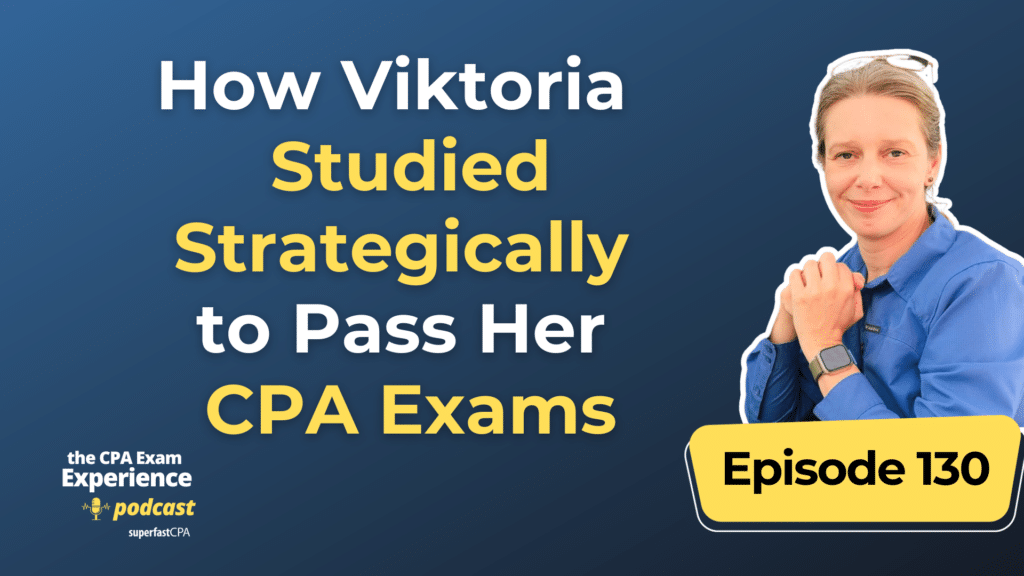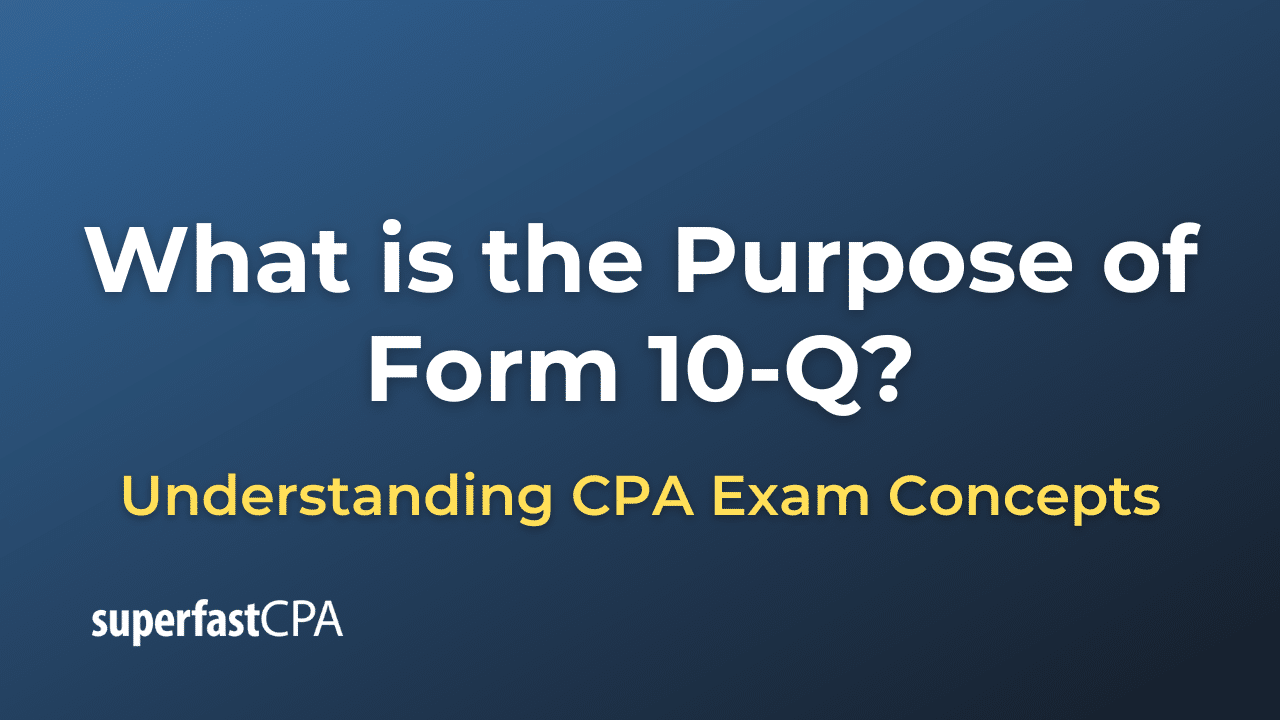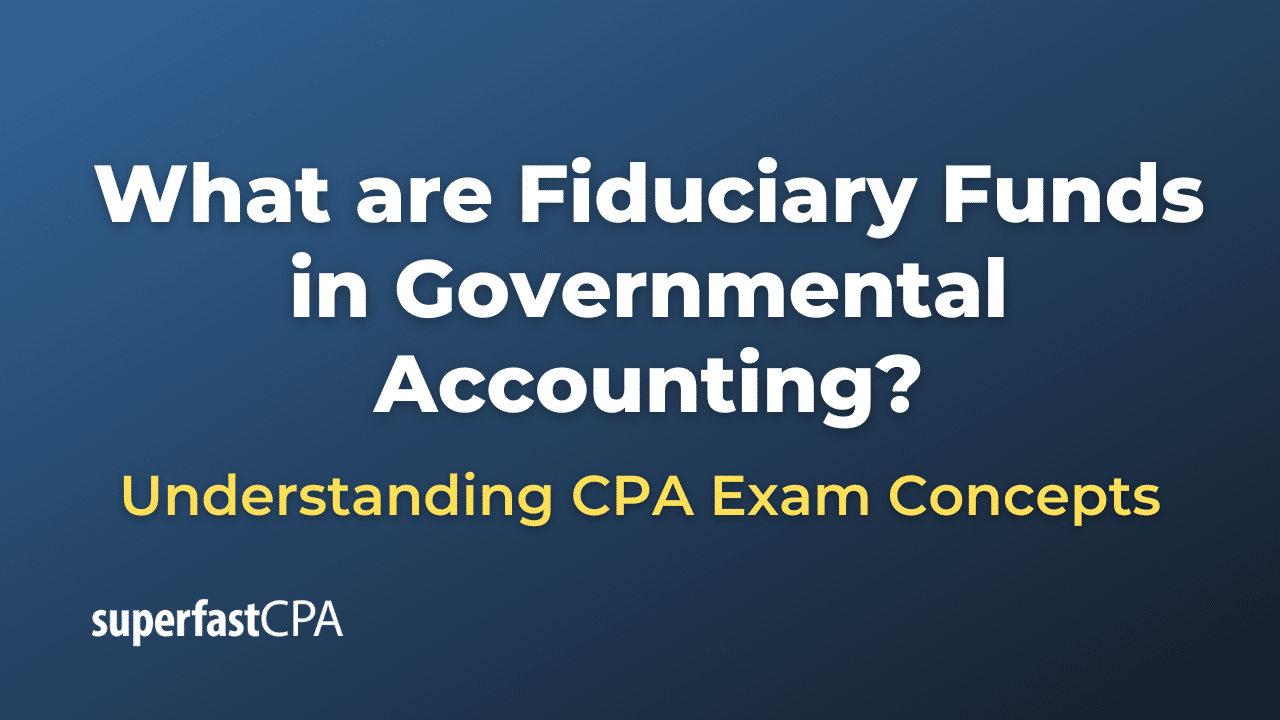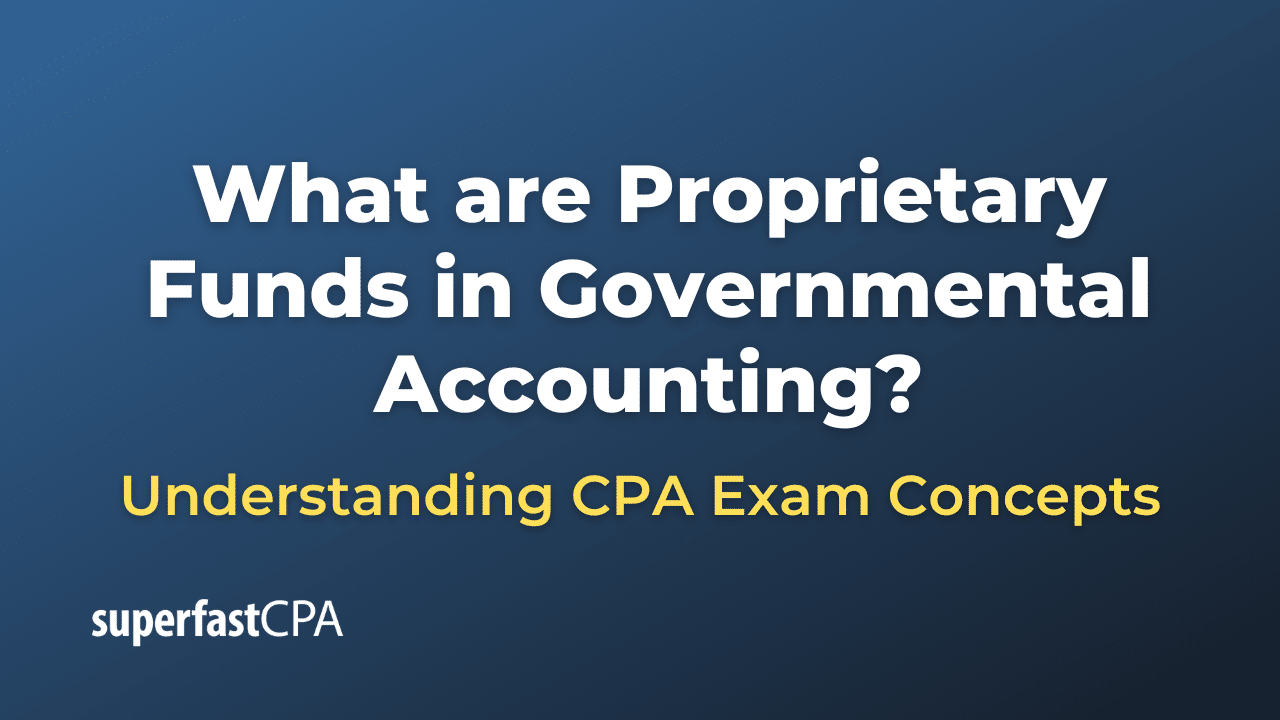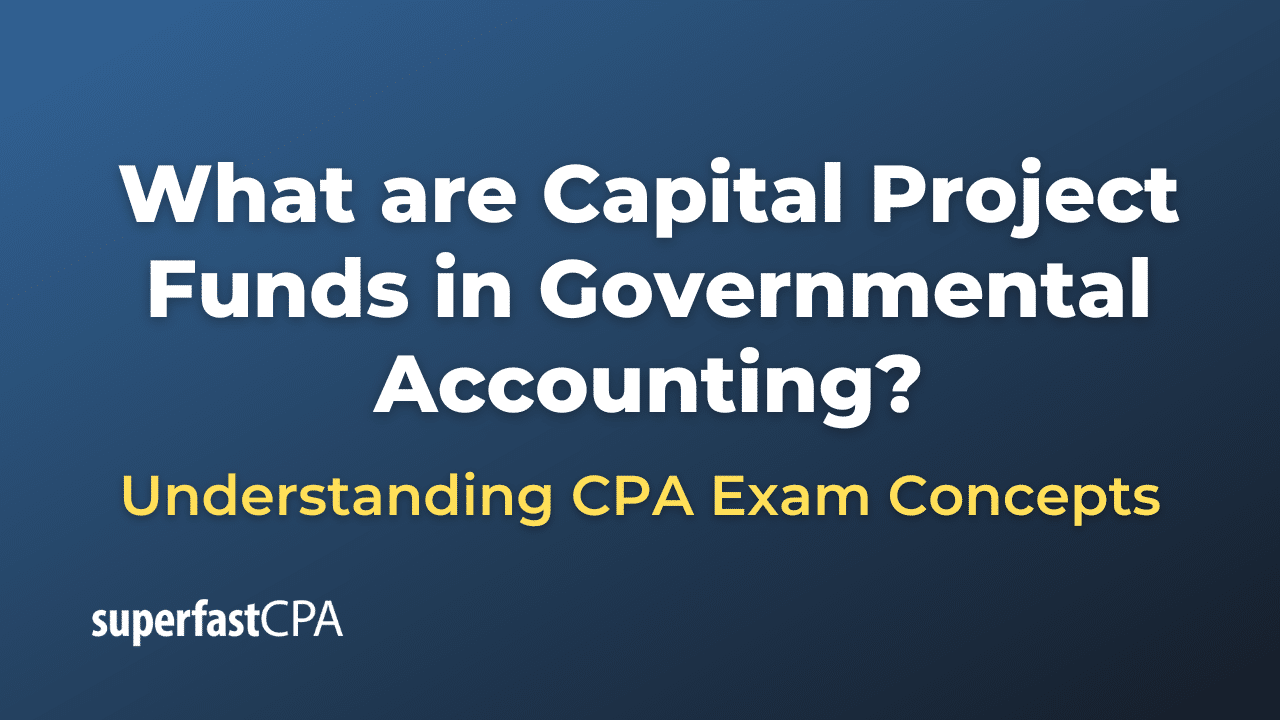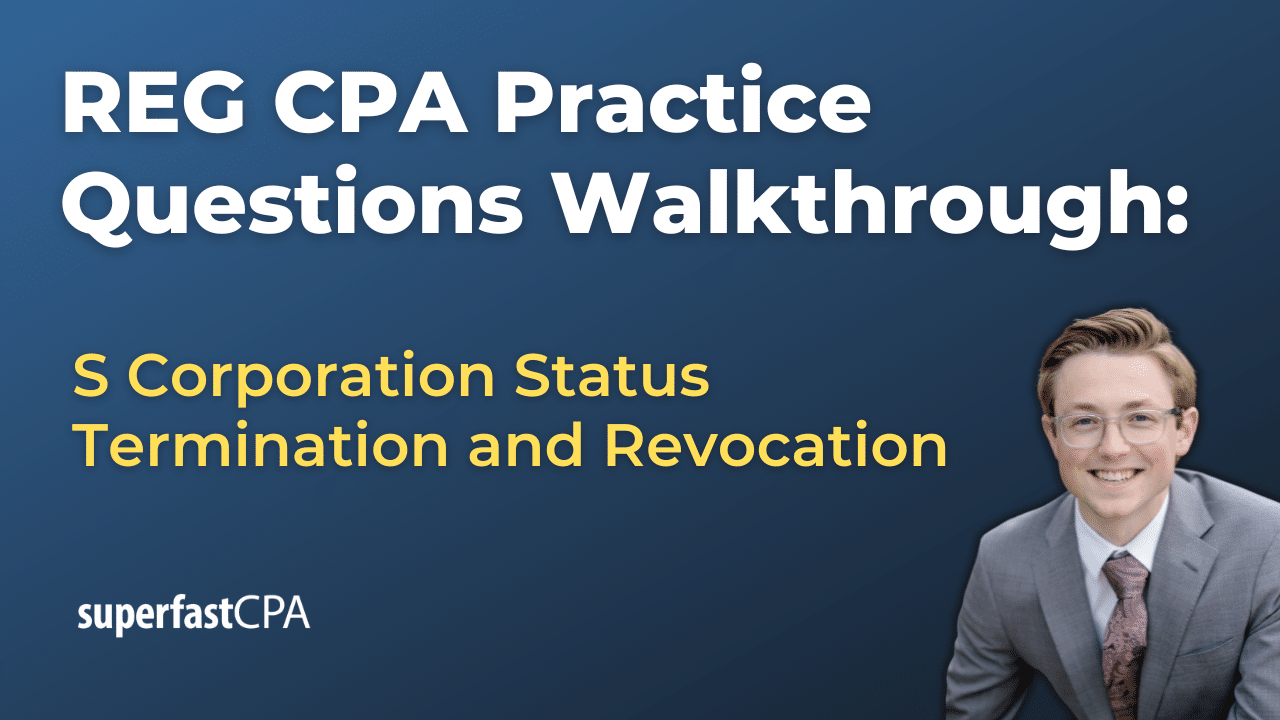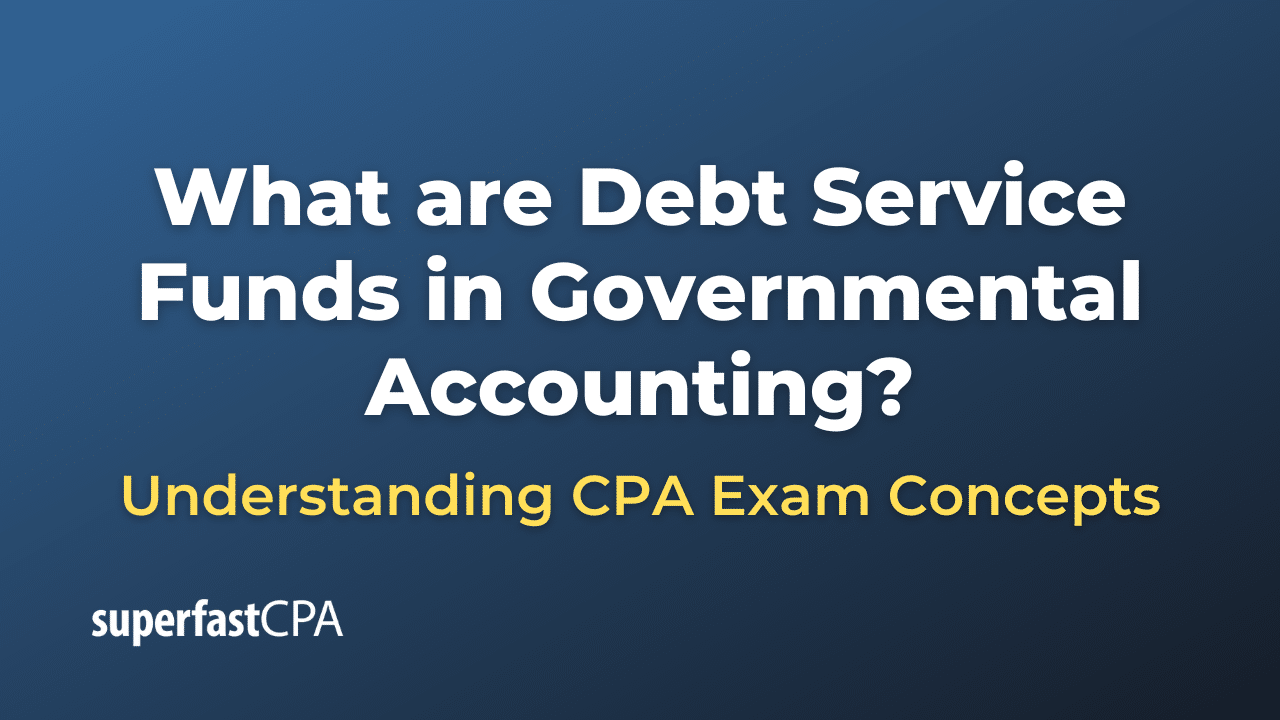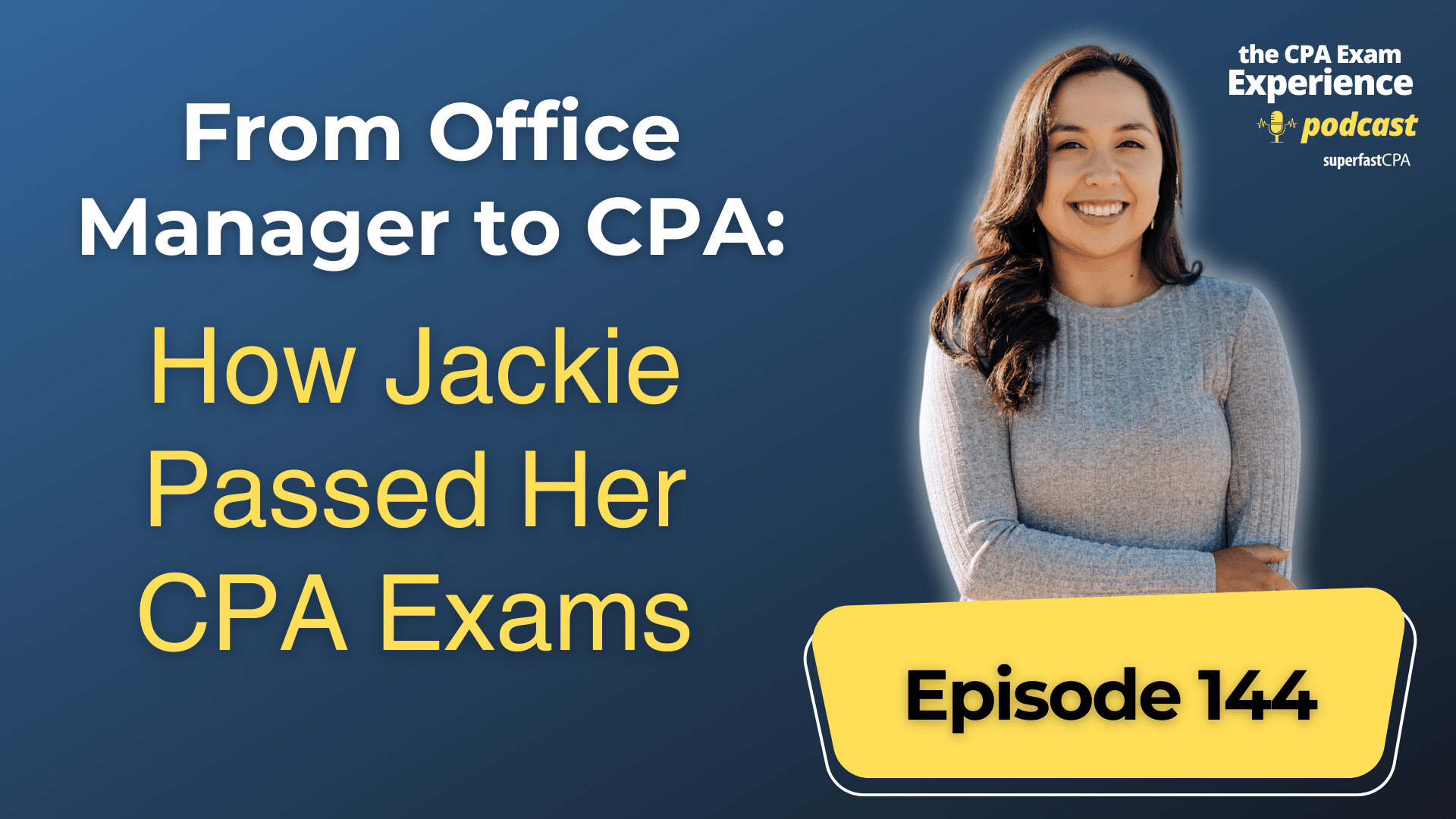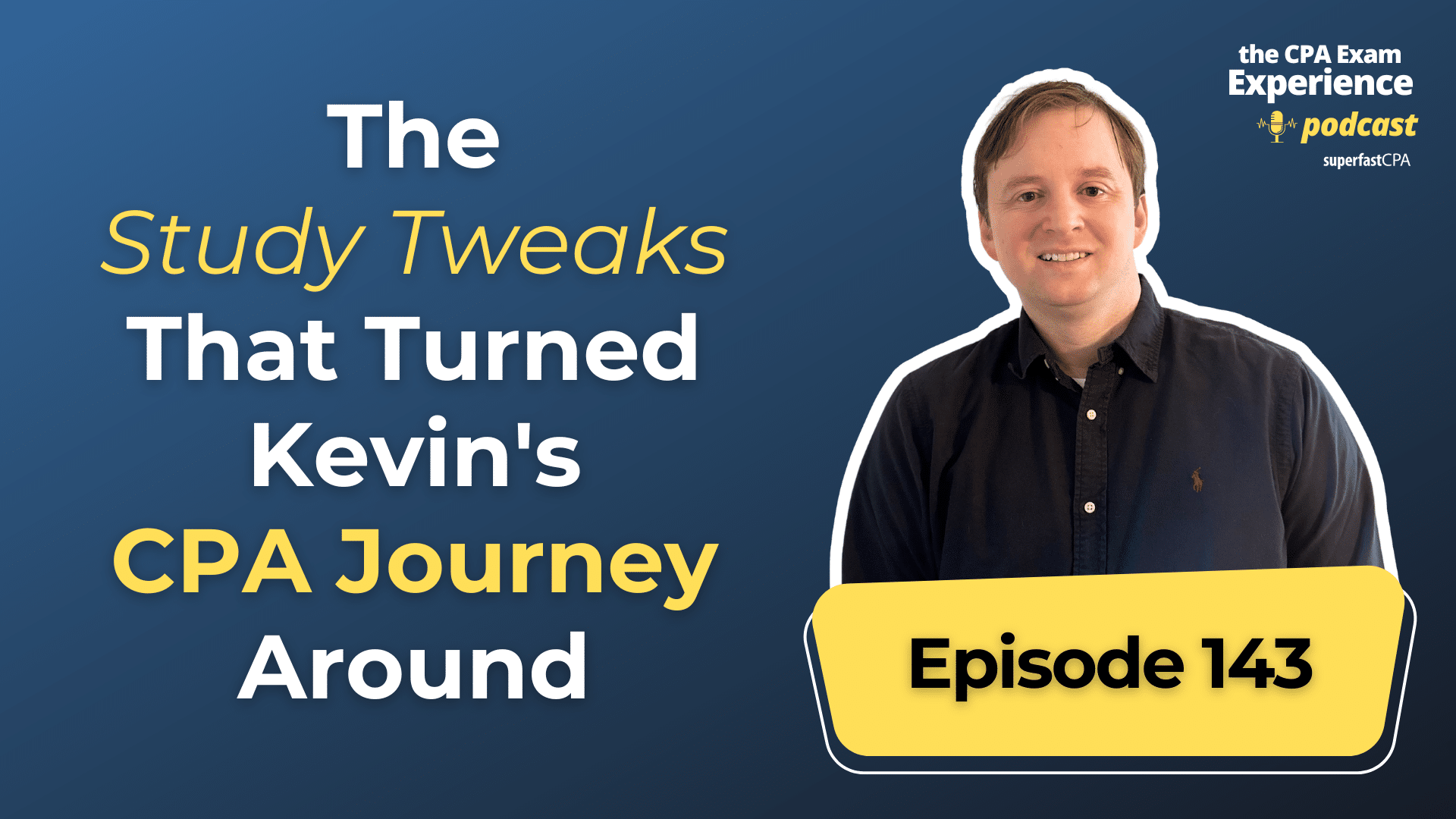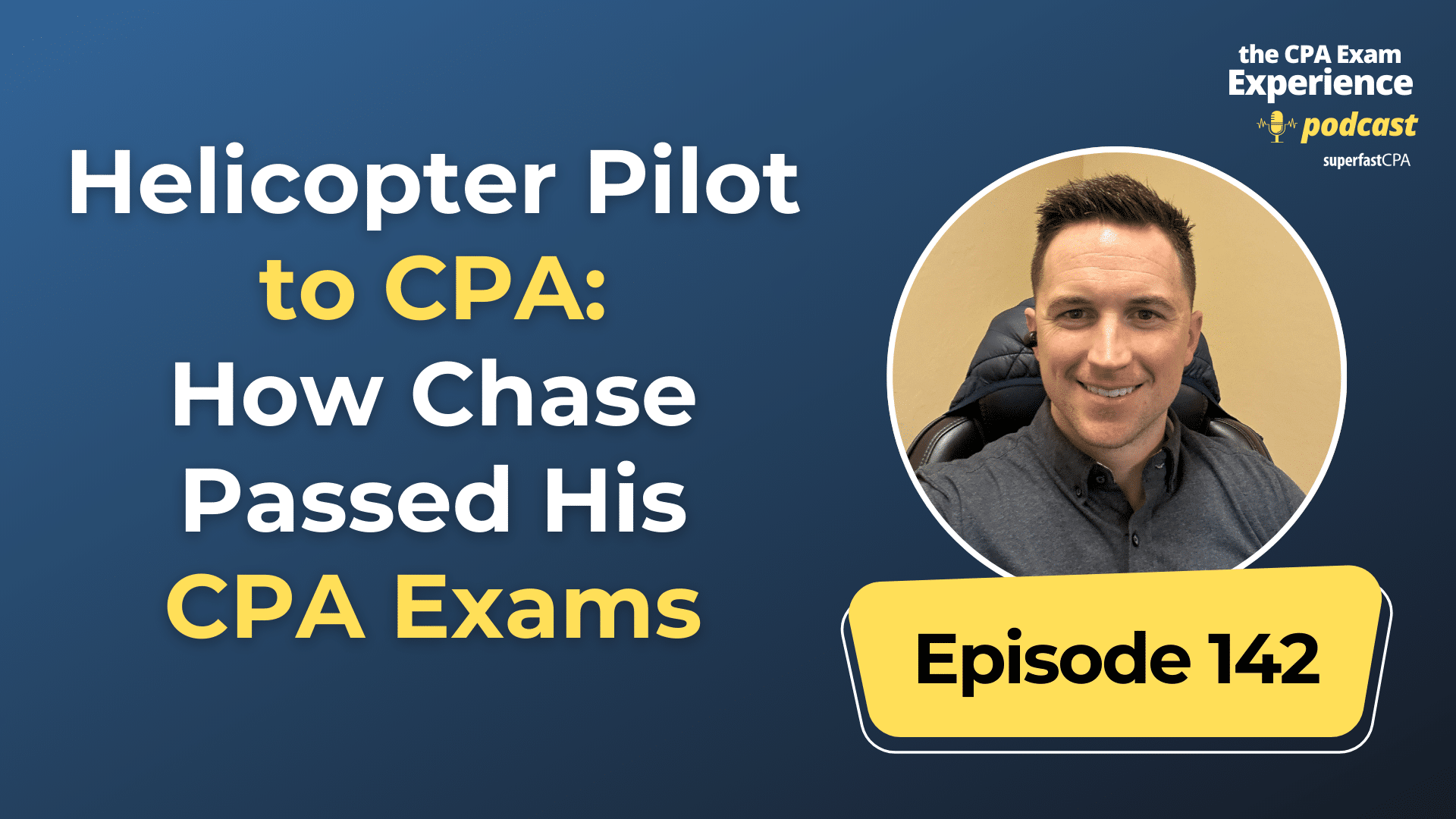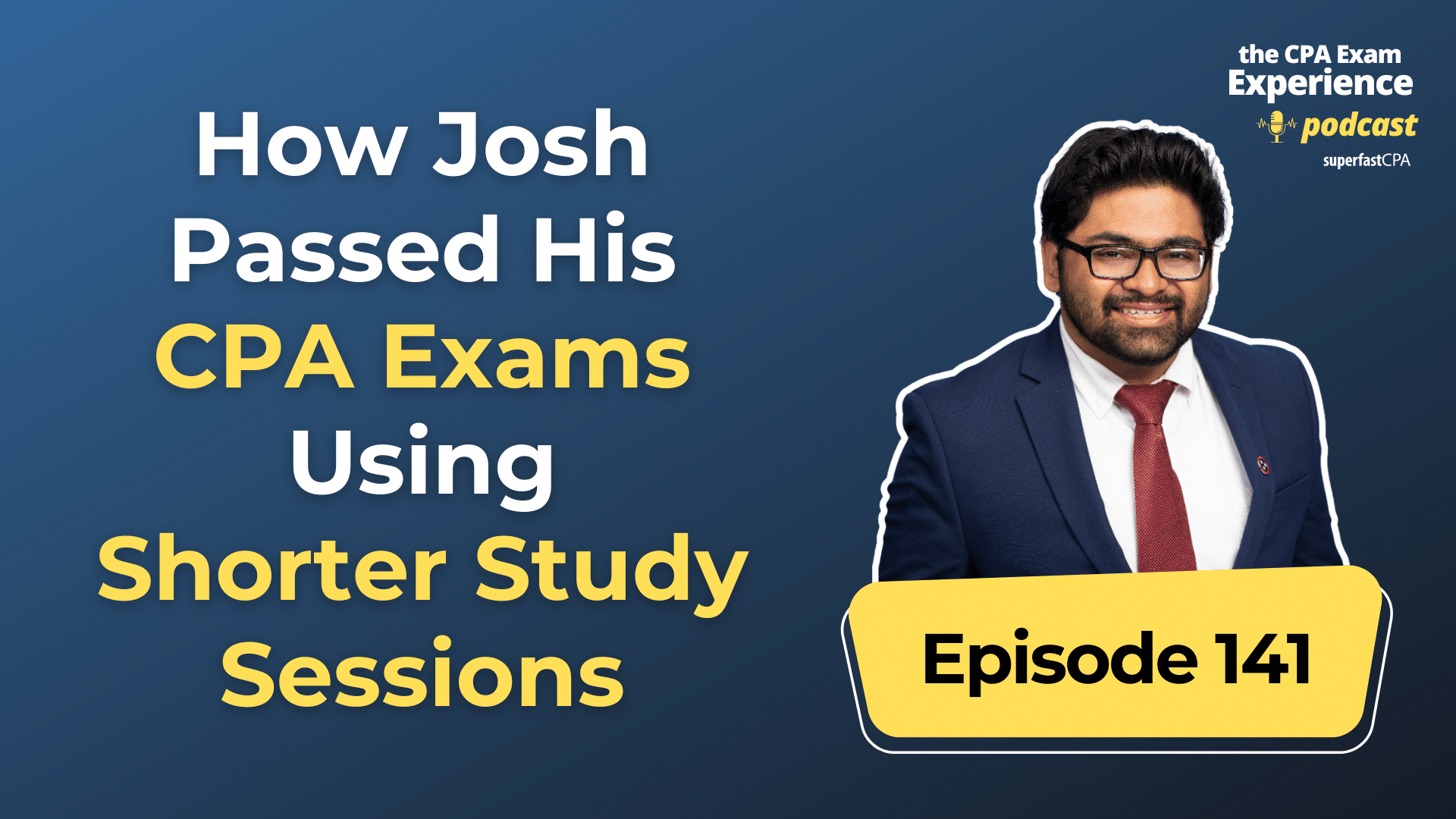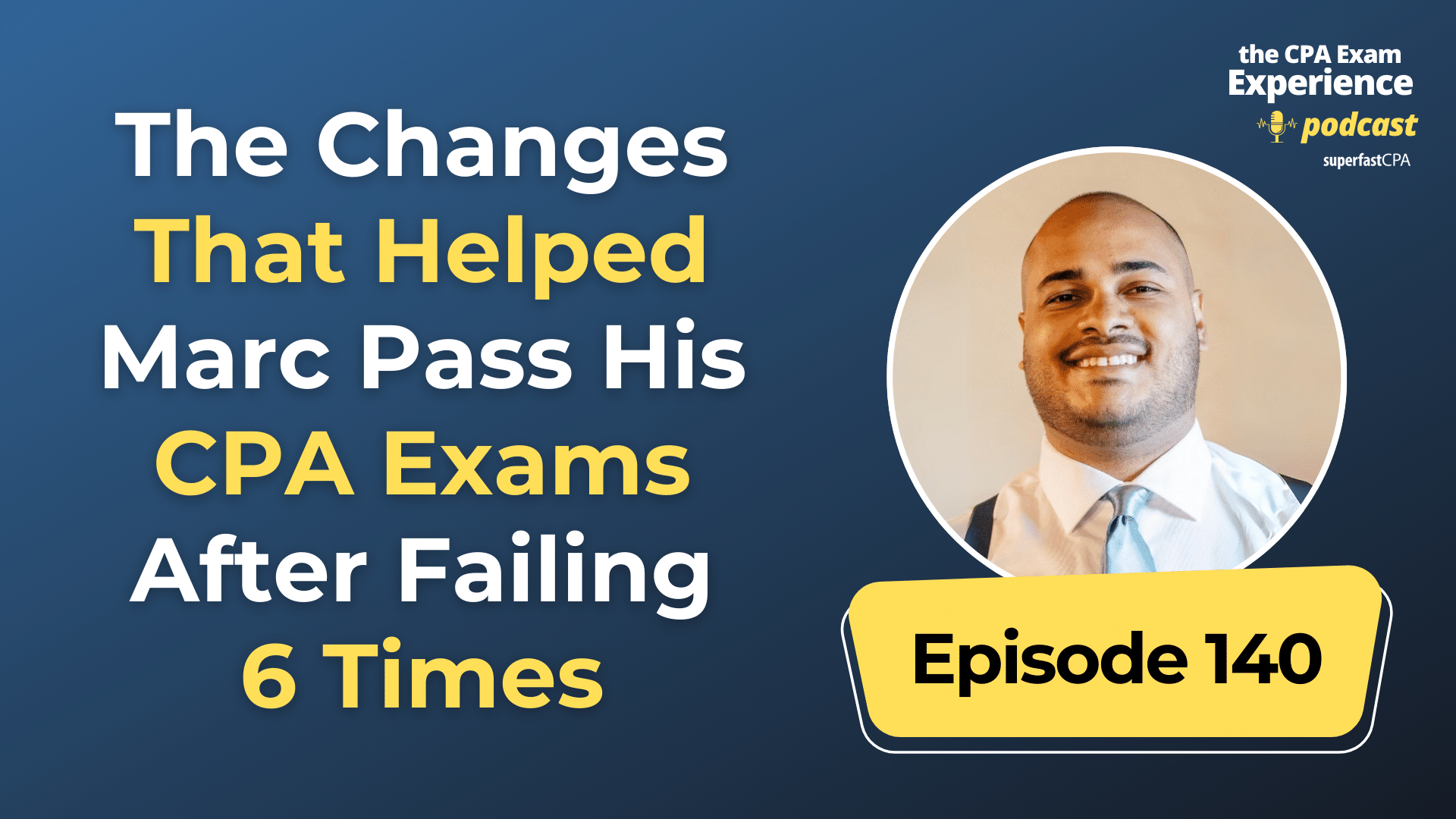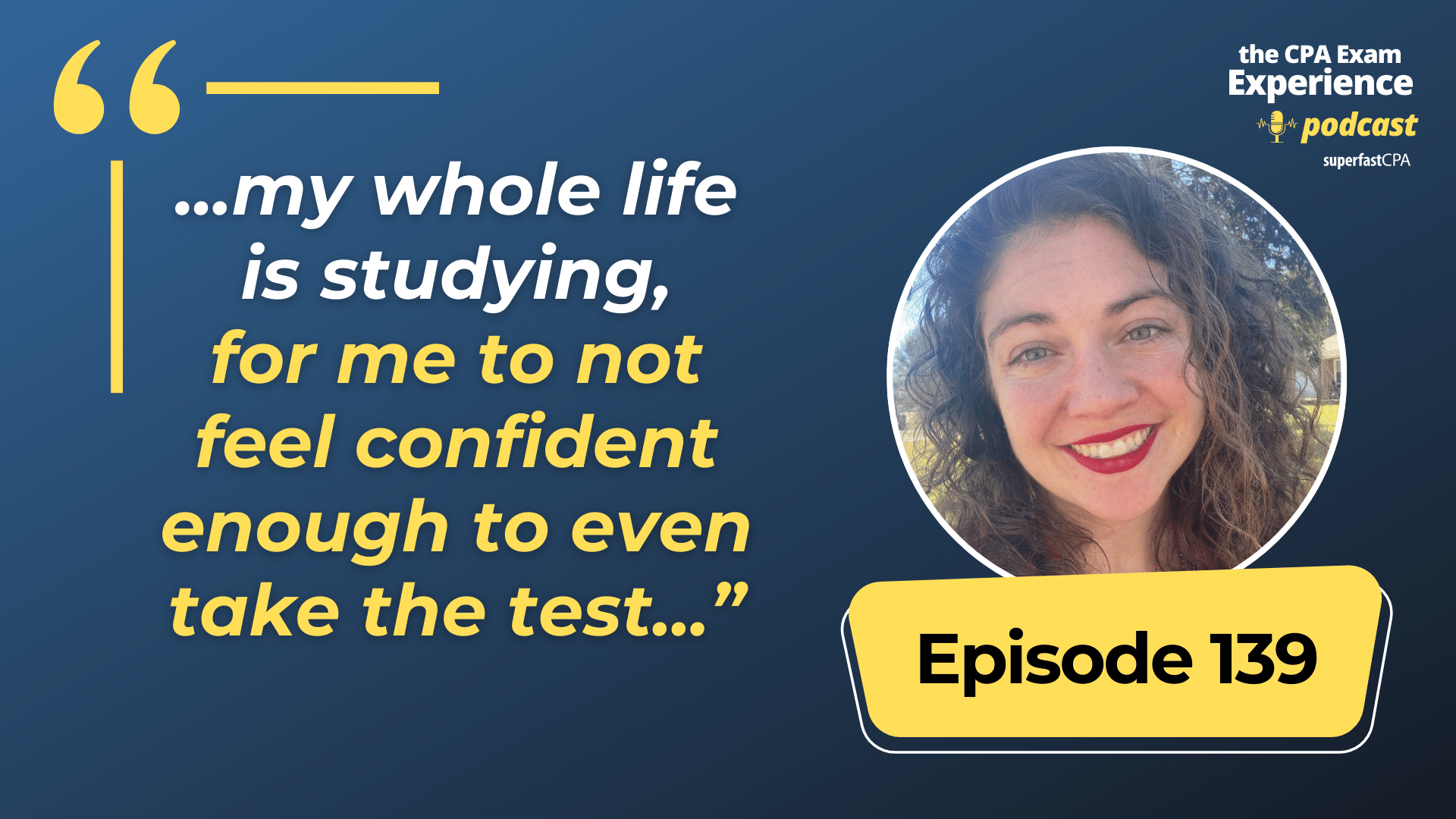In this SuperfastCPA podcast interview, you’ll hear how Viktoria learned to study strategically for her CPA exams, which led to her passing without the study process taking over her life.
IMPORTANT LINKS:
Master your study process by attending one of our free study training workshops:
https://www.superfastcpa.com/study-secrets/
Enter our free monthly podcast giveaway:
https://www.superfastcpa.com/enter
Episode Timestamps
- 0:00 Viktoria Interview
- 05:50 Non-Accounting Major to Taking the CPA Exams
- 07:57 How Viktoria Found SuperfastCPA
- 09:48 “At First It Sounds Silly”
- 12:01 Studying in the Morning Solves a Lot of Problems
- 16:13 Using Video Lectures Strategically
- 18:14 “It Helped Me Go Much Faster”
- 19:34 How Viktoria Used Practice SIMs In Her Process
- 22:11 Finishing REG an Hour and a Half Early
- 24:51 How Viktoria Chose Her Exam Timelines
- 27:01 How Viktoria Used Mock Exams
- 28:27 Becker Mock Exam Score Vs. the Real Exam
- 32:03 Viktoria’s Daily Study Routine
- 33:09 How Viktoria Used the SuperfastCPA Study Tools
- 37:00 Study Methods That Weren’t Really Working
- 38:36 How Viktoria Used Flashcards in Her Process
- 40:20 “Those Last Two Weeks Were Crunch Time”
- 41:34 How Much Time You Can Save By Studying Strategically
- 44:08 A Tip Viktoria Got From Studying Through the Questions First Approach
- 48:21 Try to Understand the “Why” Behind Questions
- 49:57 The First Few Weeks Are the Hardest
- 54:05 How Viktoria Studied for Her Final Review
- 57:56 Perseverance is Key
- 59:46 Viktoria’s Top 3 Tips for People Still Struggling
- 01:01:16 “I Really Think This Would Be a Scam”
Interview Transcript
Viktoria: [00:00:00] So I started with the regular method, so I started doing the videos and I followed along in the book and I figured the first chapter shouldn’t be too difficult.
It was like income statements and balance sheet and I figured, I know income statement, I know balance sheet. But then started doing the MCQs and I was thinking, maybe I don’t know the income statement and the balance sheet.
And then I looked at the simulation and I
I did not know the income statement and the balance sheet.
So I was like, this is not good.
Nate: Welcome back to another episode of the CPA exam experience from SuperfastCPA. I’m Nate, and in today’s interview, you’re going to hear me talk with Viktoria.
So in Viktoria’s story, she has a very common element where, you know, she worked in financial accounting. She was going to start with FAR, and in her review course, the first few lessons were balance sheet accounts and income [00:01:00] statements. And she thought, okay, great. I know balance sheets, I know income statements and she starts going through the lessons and she actually found it pretty confusing.
And so that’s what I mean when I say her story has a familiar element, where even if you have experience directly in the thing that you’re about to study in the CPA exams, the CPA exams and really the questions and the simulations, they’re just very specific. It’s a specific type of thing. So, the other way that this manifests a lot is take someone who’s worked in auditing for four or five years, sometimes even longer, but then they really struggle with the audit exam.
And that is just because, no matter what your background is, you basically have to go through this process of learning the CPA exam material in the context of CPA exam questions and simulations. And, you know, if you’ve been watching any of our videos or podcasts or any of our [00:02:00] stuff, you know that that’s our main focus.
It just makes sense to spend 80 percent of your time directly doing what you’ll be doing on test day, instead of confusing yourself with all the video lectures and all the chapters, because that’s one context. And then the exam day context of MCQs and sims is still very different from even the textbook context that gets presented in your review course.
The video lectures in the chapters obviously have their place and we won’t get into the whole study process here, but in Viktoria’s interview you’ll just hear her describe those two lenses with which to view the study process. Really trying to learn everything conceptually first and then going to the questions and how confusing that can be.
And then the benefits of just going straight into the questions and simulations and learning the material that way.
So before we get into the interview with Viktoria, I just want to mention our free CPA study training [00:03:00] webinars. So as you’ll hear in Viktoria’s interview, she actually found us through our app first, because she was just looking for something supplemental in the app store and found our app. And from the app, ended up watching one of these free training webinars and that’s where some of those ideas that I just mentioned clicked for her.
So these free webinars, it’s a one hour webinar where we walk through the six key ingredients to passing the CPA exams quickly and efficiently. And there’s six key elements or study strategies that when all six are present in your daily and weekly study process, it’s honestly hard to go wrong, when you’re doing those six things correctly.
So these one hour training webinars, it’s one hour that can literally save you months and months of time and frustration. So if you’ve never watched one of those, or you’re wondering where to start with SuperfastCPA or the CPA exams in general, that is the best place to start. So the link to those will be down in the description of this YouTube video, or the [00:04:00] podcast episode if you’re just listening to the podcast version of this.
So with that out of the way, let’s get into the interview with Viktoria.
Nate: Pacific time, where, where are you located?
Viktoria: I’m in California, Southern California.
Nate: Nice.
Viktoria: Yeah. Yeah, we’re getting a ton of snow right now.
Nate: Oh really?
Viktoria: Mm hmm.
Nate: I mean, we.
Viktoria: I’m in the mountains
and I know if you saw the news, but there is this big, uh, storm that’s coming through, so we have feet of snow out there. Mm hmm.
Nate: Yeah, I didn’t know if it was. I mean, yes, I saw the news and we got it yesterday. We got a ton. Um, everyone was, I mean, in Utah, it’s pretty, like snow is really common, Salt Lake, but for everything to shut down, is not common because of snow, but there was just so much no one could get out of their driveways So, um, yeah, that’s interesting that so where you’re at how much does it snow [00:05:00] normally?
Viktoria: We do get snow. I mean, there is a snow, I mean, Big Bear area, I don’t know if you are familiar with the mountains.
Nate: Okay. Yeah.
Viktoria: So there
are ski in here, but, uh, this, they’re saying, you know, it’s like record gonna happen in the next couple of days. So, whenever you send the email if I’m available, I was thinking, yeah I’m available, but if the internet goes out or the
out, you know. So, so far
so good.
Nate: Okay.
Viktoria: Yeah.
Nate: Yeah, the same thing with, yeah I know yesterday I was hoping the power never went out cuz it’s just freezing cold and snow everywhere. So, yeah. Um, okay. So you’ve watched a bunch of these, so you kind of know how these go. We’ll just kind of talk through your whole CPA experience so far. So, uh, do you have any questions for me before we go into that?
Viktoria: No, I don’t think so. I’m good.
Non-Accounting Major to Taking the CPA Exams
Nate: All right. Well, um, so just based on your little note here, it says your original degree is not in accounting, but you just kind [00:06:00] of ended up working in tax, took accounting classes, got to where you were eligible like education-wise to take the CPA exams. So once you got to that point, um, just, let’s start from the beginning.
What did you do to try and study in the beginning? What was the whole thing like?
Viktoria: So, um, I knew last year that I have my credits I was pretty sure I had my credits, but I wasn’t sure, I knew there was a time limit on once you start how soon you have to finish with the exam, but I wasn’t certain, uh, when that time would start, like whether, uh, when I submit my, uh, credits or whether I start taking the exams.
So just to be on the safe side, I ordered Becker and I decided I’m going to start studying for it, um, in the FAR section. And when I get to halfway, I am going to submit my credits and my application. So I started with the regular [00:07:00] method, so I started doing the videos and I followed along in the book and I figured the first chapter shouldn’t be too difficult.
It was like income statements and balance sheet and I figured, I know income statement, I know balance sheet. But then started doing the MCQs and I was thinking, maybe I don’t know the income statement and the balance sheet.
And then I looked at the simulation and I
I did not know the income statement and the balance sheet.
So I was like, this is not good. Um, and, uh, so that’s when it dawned on me I was calculating and I’m thinking just to get through FAR, like how I thought I would get through FAR. It’s like, it’s gonna take me a year. And, um, I was thinking, should I quit my job or what the heck shall I do, you know, because I don’t have a year, uh, just for one.
So,
Nate: Mm
Viktoria: I figured I’m just gonna buckle down and, you know, keep going.
How Viktoria Found SuperfastCPA
Viktoria: And, um, so I think I did [00:08:00] maybe a couple of, not modules, chapters that way and, um, I got pretty tired. And one day I was just searching the app store because I thought I was looking for something more like on a cliff notes section, like
give something that’s condensed, give me something that, and I thought Becker would have something like that, give me something that, you know, I can do from the couch, like, on my phone.
So I went to the app store and, uh, in the search, I just put in CPA and your app popped up. So I downloaded that app and once you open it up, if I remember well, even before you sign up, it lets you use it to a certain degree. Like, kind of just
to check it out, what it’s like.
So that’s what I was doing and I thought, okay, that’s pretty good.
But every time when I finished, it would pop up with that information that, hey, do you want to sign up for [00:09:00] our one hour thing? So I ignored that for a while and, um, and then eventually one evening I’m like, because it popped up again and it said that in the next hour it’s going to start. And I’m like, okay.
And I really didn’t think
going to be live. I just thought, whatever, I’m cooking dinner so may as well just listen to this, you know, thing. And then it would, in the email, it said, you know, it’s live, you have to type in your name. So I had to abandon everything I was doing at the time because actually had to sit down.
So, and I took some notes and, um, and then I got your, I think it’s the basic, you had two packages, I think.
So I got the basic one. And honestly, I just started implementing what you were saying in that video, or that one hour lecture.
“At First It Sounds Silly”
Viktoria: at first it’s tough because going to the MCQs before you actually If you haven’t read the lecture, it sounds silly, um, because [00:10:00] you don’t know the answer, or most likely you’re not gonna know the answer, and I think for some of us who are more high achievers and don’t want to, uh, make a mistake, that sucks, seeing that, you know, you only got 50 percent or less right,
um, but, uh, once you get into it, you can actually learn a ton just from the MCQs.
Nate: Yes. So, yeah, well, so one thing you said, um, just to point on that, like, you know, you said you’ve been working in accounting, like you knew balance sheet, income statements. And then when you start looking at the questions in Becker, you just realize it’s just kind of a, it’s a different thing. Like basically what I’m getting at is, no matter what you, no matter what you do beforehand, you’re gonna have to just kinda learn the context of the questions anyways. So, it’s like, obviously our philosophy is, you just start with that. Because, that’s what you’re gonna do on exam day. [00:11:00] So anyways, yeah.
Viktoria: Yeah. totally. I mean, it’s just, and in the very beginning, before I, before I got your program, I was, you know, going through just Becker and looking at those MCQs and even some of those simulation. It’s just made me mad because it felt like that instead of trying to test what I know, it felt like that they trying to trick me into something, you know, to trip up. And, uh, those little hidden things are just so well put that yes, most likely you’re you know, so,
so, um, and, uh, it’s, it’s, it’s really is learning how to take test and how to read these questions, uh, because for the most part, I think that’s what it is. And I think they probably call it critical thinking or whatever it is nowadays, but, um, it really is to interpret those questions correctly because once you do, it makes a lot of sense. But when you’re not used to reading something like that, it will be, it’s difficult.[00:12:00]
Nate: Yeah.
Studying in the Morning Solves a Lot of Problems
Nate: Um, so, so when you watched the free training, did it, uh, I mean, just from hearing the strategies or how I talk about it on the training, did it make sense how it would just make the study process easier compared to what you were trying to do before?
Viktoria: Yes. I mean, especially the morning part, because as everybody else probably, I sat down after work, and after dinner, and I was already exhausted. So, thinking that I watched a video and I did something, it made me feel better because it felt like I studied but That’s, it didn’t do anything. I mean, the next
up to do the MCQs, it’s, I couldn’t, I couldn’t do them.
That’s not going to help. It was like watching those videos. It was almost just making me, myself feel better that I did something today. Um, but really isolating that time in the morning and just getting it out of the way and [00:13:00] getting it done is just, made a whole lot of sense. I’m like, yeah. And then in the evening you’re, you’re done. You don’t have to do anything.
Nate: Okay. Yeah. So, so yeah, it, um, I could talk a lot about all the problems studying in the morning solves, but, uh, really, yeah, just when you consistently do it and you’re, you’re doing things that matter, like you said, it’s very easy to pat yourself on the back for watching a video lecture, but.
Viktoria: Right.
Nate: That didn’t really help you at all for test day, you know, it’s just not that helpful. Um, yeah. So you’re putting in the consistent time you’re, the strategies you’re using in that time are much, much more effective. So things just start to happen a lot faster.
Viktoria: Yes. Yes. Uh, back to the video lectures. I watched later on, I want to say a couple on Becker because once I got into some kind of area [00:14:00] that I tried to do a couple of times, you know, with the MCQs and it just didn’t make sense, then I would go into Becker and research, I mean, find that area in the lecture and just listen to it.
But, um, well, you can, you can see from the first couple of minutes if the guy’s gonna actually explain it okay, or if it’s just a waste of your time, but I do have to say there was one where he broke down that section so well that it’s just clicked. And from that point on, you know, I knew what, what I was doing.
So I think Becker has good stuff in it if you know how to use it, but it’s, well, I didn’t use it the way they wanted me to use it, you know, to go through section by section, but I think it has a lot of tools and you can just pick and choose, you know, what you want for yourself and then make it work for you rather than just, you know, going through the, the whole thing.
Nate: Right. And that’s a, that’s a huge point that is, you can’t really give a template for [00:15:00] that, that just anyone can you, you know, like do this, do this, do this, it’s more about this idea of, I don’t know, you can’t just rely on the review course to just spoon feed you the information it’s going to work, you, you have to be proactive in figuring out this series of strategies, like, so what I would say to that is, is like, yes, they, the intent of the review course is to have everything covered from start to finish, and it’s all in there.
But most people operate under the assumption that, okay, it’s all in there, I need to watch, read, listen to all of it. Um, but again, I think starting with the questions makes the most sense, and then if you’re kind of lost or you can’t figure out what you need to from the questions, then you can go into that lecture and find that specific part that’s confusing.
And then you have a reason to go into the lecture, and then you can watch that part or [00:16:00] read that part in the text. And it will make sense, because you’re looking for that one thing. Um, instead of watching a half hour video lecture, and you just don’t know what to do with all of that information.
Using Video Lectures Strategically
Viktoria: Right. And I wish it was half hour. I mean, honestly, if it was half hour, I
watch it. But, uh, you know, when I go into these individual chapters and I open up because I’m curious, you know, and it tells me an hour don’t have an hour just to listen to something. Yeah, if it would be like half an hour I probably maybe would be tempted because,
probably could have half an hour in the evening, you know, just to reiterate something but not an hour or sometimes it’s over an hour like it’s not worth it.
So yeah. Yeah, no. as
Nate: oh, go ahead.
Viktoria: As I found out, I mean, and they’re so right. Uh, I watched some of your, um, other, um, these interviews. Uh, but, uh, it depends who gives the [00:17:00] lecture also in Becker and are better and not so good ones. And, you know, there is one guy who just reads the text and really, that’s not teaching. Um, so, but I heard the same thing from other people too. So that is really wasting my time. I mean, if there is a calculation and I don’t understand it from the, you know, MCQs and I can’t figure it out. And if there is somebody who’s gonna like break it down for me, yeah, I’ll listen to you for like 10, 15 minutes.
That’s fine. just to read the chapter. I mean, I can read so good.
So.
Nate: Yeah, I know what you’re talking about.
Viktoria: Yes. Yeah.
Nate: Um. Okay, so, so I, I might’ve missed this, but did you, so you start with Becker alone and did you ever take an exam in that first segment where you’re trying to do everything? Okay.
Viktoria: No, I was very lucky. I found you very early on. I mean, it was, as I said, I was in the first module in the first couple of chapters, I think, when [00:18:00] I came across your, uh, uh, you know, your app. So, so, no. I didn’t even try. So, I just started with the.
Nate: Okay. Okay. So somewhere in there, you watch the free training, you get our study tools.
Viktoria: mm hmm.
“It Helped Me Go Much Faster”
Nate: And then did it, did the, this new strategy, this new way of studying. Could you tell it was working better within, what, a few days or a few weeks, or just how’d it go from there?
Viktoria: Few weeks because I was going much faster. So I was started picking up and um, I mean, I don’t know what you say in the pro videos because I didn’t have that but I was concerned about the simulations because I didn’t know what to do with the simulations. So that’s why I was listening to some of your other interviews I wanted to see what other people were doing with the simulations and I didn’t get too much of a tip out of it.
So I just figured I’m going to do my own thing. Uh, so, um, I didn’t touch simulations til towards the end. Um, [00:19:00] so, I wanted to make sure that do the MCQs and I get consistently a high percentage on all my MCQs. once I was getting really high ones, especially on the review ones, um, then towards the, so I finished all the MCQs, uh, first, um, and, um, I kept retesting and all of them came up, you know, 90 plus percent.
So that’s when I started doing, um, the simulations.
How Viktoria Used Pracice SIMs In Her Process
Viktoria: And I would, I would even skip days in the morning. Where I didn’t do the reviews because I felt pretty comfortable with the MCQs, so all I did was I just chose for, um, for simulations instead of any MCQs and, uh, started reviewing the simulations. And I, I saw one of, uh, one interview where somebody said that they didn’t even touch simulations.
That’s not me. I’m, [00:20:00] I’m very glad I touched simulations because, just because It puts a different span on the same concept, so you might think again that you know the income statement because of the MCQs are coming in correctly, but you get an income statement simulation and somehow they just do it differently, so I couldn’t, I don’t think I could have done the simulations without practicing.
Nate: Yeah, so, right, so the, uh, I guess, so kind of in the PRO videos, the general idea with the simulations is there’s a few factors, like, you need to do enough so that you’re familiar with the format. I mean, that, that part would be obvious. You don’t, you would never want to study for a few months. Pay for these exams and go in without having ever seen a simulation like that.
That obviously makes no sense. But then at the same time, endlessly doing practice simulations like a ton of it, has diminishing returns just because [00:21:00] because they are dynamic. You really don’t know what you’re gonna see on exam day, but specifically like the, the
nate_raw-synced-video-cfr_riverside: setup or
Nate: the format.
viktoria_raw-video-cfr_riverside: Yup.
nate_raw-synced-video-cfr_riverside: Um,
Nate: so the number one strategy for the sims or test day success on sims is to finish the MCQs as fast as possible so that you have as much time to sit there and, you know, deal with, you’re going to have two or three, maybe even four, like really difficult simulations on test day.
So. Yeah, it’s kind of a combination of those things doing enough that you’re generally familiar with the format, but really the main thing is on test day, crushing the MCQs as fast as you can so that you have time to sit there and deal with them.
Viktoria: Right. And I think, uh, I, I learned in, again, one of your videos about, like, try to do an average, you know, one question per minute. So, um, so I was timing myself on that one just to be in a ballpark because some [00:22:00] of them is going to go much faster, especially if there are no computation involved, you
know what I mean? Um, but some of them could be more involved. So, but I think a minute is a good, good indicator. so.
Finishing REG an Hour and a Half Early
Nate: And did you did you kind of get to that point where on test day? You were done with the sims and like less, sorry done with the MCQs in less than two hours.
Viktoria: Oh, yeah. I mean REG, I just took REG, um, end of January, I think. Yeah. And, uh, I was done with the MCQs in an hour. So that was fast and I was, I was out of that testing center. I had like an hour and a half left, you know, so when I walked out, so I was like, I’m done.
Nate: That’s a lot. You did that fast. That’s, that’s a lot of time left.
Viktoria: Yeah. So, um, so yeah, so I was like, that’s when I got your email, you know, how many I passed and I haven’t gotten back REG yet.
So I was like, I passed one, but I was thinking I’m not going to count this one because I’m not going to jinx it. Like I either came out too [00:23:00] early because I didn’t know, or I came out too early because I did know, but I felt good about the sims for sure. I mean, when I had to think about it, what I did well. I felt like the sims were good. uh, the MCQs, I, I felt for MCQs that they went better. This one, especially with those business law thing, wasn’t my favorite section. So I was like, eh, I don’t know. So, but yeah, I, I got a good percentage.
So, um, now I’m, uh, studying for BEC. I don’t know. Every time when I start on a new one, I feel like it’s not my favorite. So I feel like this is not my favorite. So it takes, it takes, uh, I don’t know. It takes an extra oomph in the morning to get up for BEC.
Yeah.
Nate: it’s yeah, um, BEC used to always be considered like by far the easiest, but in the last few years, they’ve just added enough things to it that a lot of people find that to be the hardest one. It [00:24:00] just kind of depends on your background. Um, so you’re done with FAR and REG, so the two hardest ones.
Viktoria: Yeah, I wanted to start with FAR because it sounded like that was the most difficult. So I, um, I wanted to get that out of the way first. And I also heard at the end of last year that, you know, the whole CPA exam is going to be changing in 2024. I’m like, I don’t want to deal with that.
So, um, I want to get it out of the way this year. format has been tested. It’s been done for years. So I don’t want to be the guinea pig, you know,
year if I don’t have to be so, so, so like, let’s get it out of the way. Yeah.
Nate: Yeah, you’re you’re gonna be done. You’ll probably be done by July, I would guess, or I mean, if not sooner,
Viktoria: Yeah. That’s, that’s, that’s what I’m shooting for, summer.
How Viktoria Chose Her Exam Timelines
Nate: How long? Uh, so, well, I guess one step back. So when you got your FAR score, you know, obviously you passed it. [00:25:00] Um, so was that just a confirmation? Like, okay, this what I’m doing every day, this is going to work. And then from there, like, how, how long did you set with this new way of studying? How long did you set to study for REG?
Viktoria: So,
um, for FAR I studied longer than what you, you generally suggest and I did longer for REG too because I just want to feel comfortable. I probably could have passed sooner or I mean could have gone sooner and passed, um, but I just like, I need that feeling inside that I’m, you know, I’m comfortable with it.
So I also took the two weeks off after taking FAR or maybe it was three, uh, to find out the score because, you know, I just didn’t want to jinx it again,
so I was, so I waited. So, uh, I would say it was about ten weeks for REG, um, but I could have been longer because I took vacation, you know, so in between, and I
my [00:26:00] books with me and I was thinking that I am going to do something, but that didn’t really work out.
So, uh, so there were some gaps in there, but by that time I already knew from FAR that to me, just taking gaps here and there, it’s not going to affect me that much.
Because I did that with FAR too and it was, it was fine. Um, and again, I listened to some of your videos and some of the other people, you know, what they suggest, how to tackle this and I was thinking about that too, like, you know, if I would have to tell somebody how to tackle it. And honestly I think it really depends on, on you. I mean, on the person. Uh, and I think once you’re going for your first exam and you get your score back, I mean, really, that’s what’s gonna give you a feedback.
Whether you’re on the right track or not, because if you passed it, you know that working if you didn’t, then obviously you need, you know, there’s some [00:27:00] adjustment that needs to be made.
How Viktoria Used Mock Exams
Viktoria: But, um, so yeah, uh, passing FAR I was super nervous. Um, I mean, I was very nervous, but, uh, in Becker, they also have those four hour tests or those, you know, end of the program tests um.
Nate: Mm hmm.
Viktoria: I sat down on the first one just to do it at home and I was so nervous because I totally felt like I was sitting there that I had to
abandon I had to abandon
10 questions because I couldn’t remember a thing and I was like, I’m like, I don’t know, but then I went back and I, I did it and I did the second one.
And. I think, again, I, I don’t know, I just learned to trust, trust Becker now from that perspective because at the end when I’m done with all my MCQs and my reviews, um, the last week, all I do is review and I do all those tests that Becker has, because I don’t do them as they have them, you know, [00:28:00] like after a
certain module, they have a test, I skip those.
I keep them for the very end. So at the very, on the last week, I do all the tests that they have in there. And, um, think they say that if you pass, like, with 55 percent or more, you’re exam day ready. So, I passed, you know, in the 70s, so I was like, Okay, if Becker tells me I’m exam day ready, then I’m exam day ready.
So, I was, so.
Becker Mock Exam Score Vs. the Real Exam
Nate: So, that’s one interesting thing, or, yeah, people talk about it on Reddit a lot. How did your scores compare on your Becker final mock exam to, so it sounds like you got in the seventies, was that like similar or do you score higher? You like, how did they compare it to the real thing?
Viktoria: I scored much higher on the exam, so.
Nate: Nice.
Viktoria: So, um, uh, um, yeah. So, I don’t know if those, they make those questions, like, really hard [00:29:00] in Becker or whatnot.
Nate: Yeah, they, yeah, Yeah, they make them harder. Yeah.
Viktoria: I mean, they’re hard. I mean so first when I saw, when I did my first, uh, like final review and it was 65, and I was thinking, how the heck do they think I’m exam day ready?
I don’t pass with 65.
Nate: Mm hmm.
Viktoria: And, uh, But they said I was ready, so, so I’m like, okay, and then, of course, I did the other test and that came back a little better, but still, I think it was like low 70s, so if I get low 70s, that’s not gonna, you know, that’s not gonna fly, so, um, yeah,
Nate: Now, were you also doing, um, were you doing the thing where you kind of ended each session with a set of 30? That’s all previous, like day to day?
Viktoria: Yeah.
Nate: And towards the end, what were you scoring on those?
Viktoria: Oh, but if I don’t get into the 90s, then I’m not happy,
Nate: Okay.
Viktoria: Um, so it’s high 90s, [00:30:00] but, uh, yeah, high, Yeah.
So I’m okay with one or two mistakes, but towards the end, uh, I mean, it has to be mistakes that when I look at it, I was like, oh, it wasn’t because I didn’t know it was because I messed up because I didn’t read carefully,
Nate: Mm hmm That’s kind of interesting though. I’m just I’m thinking of the, you’re doing random sets of 30 in Becker, so it’s in Becker and you’re getting in the 90s and then their practice exam you go back down to like the 70s I’m just yeah, I, they must make those mock exams, maybe like even a little harder than their like, lesson based, uh, questions.
Viktoria: Oh yeah, absolutely.
I mean, they’re harder. Um, and uh, what was I going to say? And then towards the end, I also do, not just the set of 30s, but I go back individually into each module and do a 20 per module. And
[00:31:00] um,
uh, so because those 30s by the end, you have so many chapters and you’re just getting maybe a question from each, you know, or something. So, uh, yeah, towards the end I go back and I’m like, okay, module one and then give me, you know, 20 out of that one and give me 20 and give me two simulation, know, so um, so my re-reviews, I, I do a lot of re-reviews.
Nate: Okay, so, um, well, two things, two comments, I guess. So, that’s one thing, that’s funny you say that, because we added, or I tweaked, like, our restudy strategy. Restudy and a final review, it’s like the same strategy. You go chapter by chapter, just for that reason. So that in one study session. You know, you’re reviewing the same types of questions instead of just, you know, 30 questions where they’re all spread across all topics.
[00:32:00] Um, anyways, so without going into all that.
Viktoria’s Daily Study Routine
Nate: So second question is, uh, in your, so what was just your daily process from start to bottom? You do two hours in the morning and then would you do some review sets in the evening or how were you fitting in all the review you were just mentioning?
Viktoria: So I do maybe two hours in the morning. I do, uh, I do new questions, uh, depending on how much, how many is in a module. Uh, but if there is 30 plus, then it’s going to take me that 50 minutes, uh, just to get through that new question section. And then I took a little, I take a little break and then I come back and do a 30.
Uh, you know, review question, but depending on what you’re reviewing, I mean, if you’re reviewing REG, that 30 review question is not going to take you another 50 minutes. I mean, that’s going to go much faster. And that’s it. So that’s all I do in the morning.[00:33:00] So it could be an hour and a half instead of a two hour.
And then, um, and then during the day, really not much, uh, afternoon.
How Viktoria Used the SuperfastCPA Study Tools
Viktoria: Um, I start at your app, um, and then in the evening, when I finally, I don’t have anything else to do, and that’s why I like your quiz app because I’m literally in bed, and, uh, just before, you know, like, turning off the lights. I start doing the quizzes, and I can spend, you know, like 20 minutes on your quizzes, and you know, we all know your quizzes are fast, so by the time I spend 20 minutes on it, that’s many questions.
Nate: Yeah.
Viktoria: So, um, so that’s it, uh, for the day. And I don’t, I know I heard some people that they change it for the weekend. I don’t. Uh, I only change it before exam. So like a week, or maybe a couple of weeks before the exam, then on, on the weekend I sit down more. But other than that, no. Uh, and then, [00:34:00] um, I also, I mean, I have listened to your, um, audio notes.
I’m not saying I listened to all of them, but on certain ones that I need more of a condensed information, like in FAR, I really disliked governmental, and Becker was just so much information. And, yeah, so that’s when I took your review notes out because it was condensed. It totally explained what the heck is going on with this governmental section.
And it was just perfect. I didn’t need more information about it. I didn’t think so anyway.
Nate: Yeah.
Viktoria: So it was plenty. Um, so, uh, yeah. So I take your review notes out when I need something extra or something like, yeah, really cliff notes. I mean, I don’t need, yeah. Anyway, so.
Nate: Yes. Yeah. So yeah, coming back around to your earlier comment where your whole point of finding us was you were kind of looking for [00:35:00] what the review notes are kind of a cliff notes summarize thing. So yes, I was getting to where I was going to ask you how you used our study tools for that purpose. But yeah, you kind of just described that.
Viktoria: Mm hmm.
Nate: So you just kind of in the evenings, uh, just kind of like light studying like not the full computer open just stuff, basically using our ,app whether it was, yeah,
Viktoria: And then that’s when I would read something. So I look ahead like what’s gonna be, let’s say, my tomorrow morning’s agenda when I look at the MCQs. And, uh, so I have a vague idea, you know, what I’m facing tomorrow. So then I, I either look in your section to give me, like, an overview so I’m not really completely out of the ballpark.
Um, or I mean, Becker also comes with his, its final review booklet that has some kind of notes in it. That’s again, not too much, [00:36:00] but I just try to look at, you know, what it’s going to be. And, um, but I don’t do it every evening. It’s just, you know, whenever.
Nate: Yeah.
Viktoria: And then, um, I did it more on REG, uh, because I felt like that was a lot of information and I, I have read REGs book, um, because I did sit down in the evening. I read the chapter just so I know what I’m looking at in the next morning. Honestly, I mean, it’s not like I retained much of the information. It was still, you know, doing the MCQs the first time around. It’s still coming back not so great. Um, but at least I know, you know, I’m dealing with, I don’t know, C Corps rather than something else.
So,
yeah. Yeah, but, uh, I don’t know. Uh, I mean, honestly, this is the best way to study for this exam. I don’t even know where I would be I would still be, probably I would still be doing FAR, somewhere halfway, if, if anywhere.[00:37:00]
Study Methods That Weren’t Really Working
Nate: Yeah, so yeah, so about that, was it, so when you started and you were just using everything Becker had trying to watch every lecture, read all the text, were you were you spending more time each day studying? Was it like you would work and then try to study all night? So your life..
Viktoria: Well, I didn’t study all night but I would just listen to that video and then, um, and then when the MCQs were not good, then I would go back and sit down and I would, so see, I would skip. Because I don’t have, I mean, I’m tired in the evening. So okay, I’ll look at it over the weekend when I have time. So then I
sit down with the book, with the video at the same time, you know, highlighting or whatever they’re saying to underline to put the notes on the side.
And I understand a certain degree that when you write things down it tend to stick more. By writing them once not [00:38:00] going to stick more. So I think you have to write down certain things multiple times and that’s where the flashcards are gonna come in when we start talking about it, but yeah, you have to write it down multiple times just because I highlighted in Becker and put a little note next to it, it is not going to be in my head, you know, so, so, yeah, yeah.
Nate: Yeah highlighting the chapter is another like fake studying tactic, you know, it feels like you’re kind of doing something important.
Viktoria: Yes.
Nate: But it’s just, you’re not. Not at all.
How Viktoria Used Flashcards in Her Process
Nate: So going on to that, so you use flashcards then?
Viktoria: I did, and that was something very new for me because I’m, I was not a flashcard person, but I heard you say to do flashcards, so when I heard you say it first, I thought, I don’t need that. Well, um, I, I realized I did need it. Um, so I had like this many for, I [00:39:00] think for FAR and
I didn’t need it all the time because once I wrote it down a few times, it will stick.
So, um,
so after a while, I realized that out of that big flashcards, there were multiples because sometimes I wrote it down multiple times. So, um, eventually, there were just a few that really I had to look at it more, um, because there are going to be, and that was hard for me to imagine too, because you mentioned that in your video I think that there are going to be sections that just not want to go into your head and I didn’t
Nate: hmm.
Viktoria: actually could happen and it’s very frustrating when you look at it like I don’t know how many times and it’s like just not, doesn’t want to get in there and so those are the flashcards that I really looked at the last time and I took them with me you know before the exam.
I’m just glanced on them one last time, you know, in the car before I actually went in just so, you know, uh, [00:40:00] because I, I realized that, yeah, those, those are need to be, you know, I need to concentrate on them. And again, whether you get a question or not, I don’t even think I got a question on, on that section, but, still, just the fact that it just doesn’t want to get into your head, it’s frustrating enough, at least to me, that I need to, you know, I need to review that.
“Those Last Two Weeks Were Crunch Time”
Nate: Yeah, so your, your process was basically, um, you kind of made flashcards along the way each day as you’re studying. Would you review them very much or do you just kind of save that? Like your daily process was more making new ones or sometimes duplicates and then you really reviewed them just the last week before an exam or were you reviewing them also the whole time?
Viktoria: No, probably the first part. So yeah, no, I would make multiple of them, um, and, uh, keep making them. And here and there, I would pick them up. Uh, but really, again, it comes down to that last two weeks. I mean, the last two weeks is, it’s crunch time. [00:41:00] Um, so that’s when reviews, whether that’s the MCQs, the simulation or Becker test or the, um, you know, the flashcards, that’s when everything comes into play, but not before.
I mean, I think before take the whole thing pretty relaxed, um, just, you know, plugging along, doing my
uh, but yeah, so two weeks before the exam when it’s like, okay, now it’s really real, um, I’m going to have to go in and sit. So that’s when I. I really sit down and, you know, look at these things and, yep.
How Much Time You Can Save By Studying Strategically
Nate: So one thing I wanted to ask you, when you said a minute ago, you’re like, yeah, this is the way to study. I don’t know where I’d be if I kept doing it the other way. What specifically do you mean just in your mind? Like before, uh, like what are you referring to? Just that you were putting in time and effort and you just still felt like it wasn’t working.
And this is just, you can tell it works. Or like, what were you referring [00:42:00] to when you said that?
Viktoria: Well, when you look at the FAR book, you know, and if I really, I really thought I have to know every single thing in that book.
Nate: Okay.
Viktoria: And, and looking at it, honestly, you know, just by doing the MCQs, I might actually know what’s in that book, like, really do. Um, but I would have done. the old way. I would have re-watched the guys videos.
I would have read the chapter and I would have gone back to redo the MCQs. And after the, you know, because the MCQs, the first five are pretty easy. So those are like the warm up ones. I always look at them that way. But after the fifth or the tenth ones, that’s when they’re going to start like, you know, like some curveballs coming at you.
It’s like, what? And then when you get to that question, it’s like, oh. I didn’t, you know, I didn’t pay attention on this chapter. So then you go [00:43:00] back, you know, you’re probably not even going to do the rest of the questions because you get stuck on that 10th one. So then you’re going to go back to the video, listen to that section, like where you didn’t catch that little nuance that you should have, you know, caught and open up the book again, highlight it again, put another star next to it that, you know, and then you go and do that.
That one question, that tenth one, and then you get to the eleventh one, and it’s going to be a little bit different.
Not much, but it’s enough that you’re not going to know. then you do the same thing. So by the time you finish with 30 questions, that’s going to take like a week or two, you know,
just,
you know, doing that. Yeah.
Nate: Yeah, Yeah that’s a great description. And I mean, I was mostly having you explain it, you know, for the benefit of people that will listen to this. Um, but yeah, that’s, basically what you’re talking about is, it just takes so much time[00:44:00] to accomplish the same thing that just going straight into the questions does so much, so much extra time, that’s not really necessary.
A Tip Viktoria Got From Studying Through the Questions First Approach
Viktoria: And honestly, I mean, even on Becker, what I do most of the time is, you know, I go to the MCQs and when you do, uh, and you don’t know it because most likely you won’t, there is that “See Lecture” button and I just click on that and it takes you right. To that particular section.
So, I kinda it
You know, what it says, etc.
And based on what I just read, I try to answer the question. And honestly, even sometimes reading that part is not gonna get me to the right question, or the right answer. And then I read, you know, on the bottom, as you said it in your videos too, to read, you know, why that is a good, uh, answer and why the others are not. But, I find that “See Lecture” button extremely helpful, and, uh, because instead of going through the whole book, it just [00:45:00] focuses you into that one particular area where, You know, you should be looking at the answer. I think that’s great.
Nate: That is a good. Yes, that’s a good tip. So again, instead of, instead of watching the whole lecture, not really knowing what to do with all that information again, going straight into the questions, a lot of questions, you, you might not know it on the, at the beginning, you submit it, see the solution. And it’s just not that hard.
You can be like, okay, I, I get this other ones. Then you can click that button, go straight to the broader explanation of that. Um, again, without having to do that hour or two, um, on the front end of like watching the whole video first. Yeah, that’s a really good point. Mm-Hmm.
Viktoria: And even for calculations, it’s great because you click on that “See Lecture”, um, you know, if you scroll down a little bit and if it’s calculation related, they’re going to have an example. So I look at that example and I try to understand that particular example, [00:46:00] like how they calculated it out.
And then I go back to my own question and calculate it out according to that example. and I think, again, I think you mentioned it in your videos as well, but I think it’s, it’s extremely important to understand what you’re doing. So even though you are answering the question, or as you know, as we all know, after a while you’re gonna be remembering the answer. But it’s important to understand what you’re doing and why you’re doing what you’re doing. And, um, I mean, even in Becker, when I look at some of the calculation and it doesn’t make sense to me, it’s not because, don’t know the calculation. It’s because I would calculate it differently. So then once I realize what they’re doing, then I try to calculate it the way I would do it.
And it gets me to the same result. I mean, I can’t tell you [00:47:00]
right now, but there are
little nuances, you know, that makes more sense to your brain rather than how they did it in the book. instead of just copying the book, um, to, you know, like interpret it to your own thinking and
it that way, you know.
Nate: Right.
Viktoria: If that makes sense.
Nate: Yeah, it totally makes sense. I know exactly what you mean. Uh, but that’s another benefit of doing primarily like spending most of your time on questions. You just pick up all these little, you, you just get good at answering questions. Again, where if the majority of your study session every time is video, then read the text, then a little bit of questions, you just can’t, you just don’t get to the same spot, like, uh, yeah, with how, how fast you are at questions, those little nuances, like you mentioned, um, yeah, you can figure things out, certain question types, [00:48:00] like you said, I can’t remember an example, but I had several ways of, these, like, super shortcuts that I would figure out on calculation based stuff.
Just, like, wait, I swear if you take this with this, this gets to the right answer every time. Instead of, like, five T-charts, um, you just figure stuff like that out. Yeah.
Try to Understand the “Why” Behind Questions
Viktoria: Yeah, I agree, and yeah, just, you just have to find your own method but if you don’t do enough of them, then you’re not gonna obviously get there or if you I don’t know I guess don’t take the time to to sit down and kind of ponder, you know, over question, like why this is the way it is,
um, then, you know, you can, you can miss some of these things.
But I think understanding what’s going on, like, right now I have issues. I’ve had issues with, and FAR too, with the foreign exchange stuff, and, but here it is in BEC again, it’s, uh, you know, like, God, I thought it was [00:49:00] over. So, so, so, uh, yeah, I, those are the flashcards I have. And I was, you know, again, I’m trying to make it, like click in my brain, so I’m looking at it in every different angle. I didn’t get one question on FAR regarding foreign exchange rates. I don’t know if I will in here or not, but at the same time, I want to, I don’t know, I just want to get it to the point where I’m not, they can’t trip me because that’s what they’re going to try to do.
You know, it’s, uh, it’s
easy. It almost feels like your brain has to jump some hoops over it to figure out, you know, which way I’m converting or what the heck is going on. I think, uh, I don’t know. So yeah. So I’m working on that one right now to get it all like smoothed out.
Nate: Yeah, it’s, yeah, it’s one of those things where you do enough problems on it and it It’s like almost instantaneously, you just like reach that level where, okay, I, now I get this.
The First Few Weeks Are the Hardest
Viktoria: And I that’s why it’s always [00:50:00] difficult. I’m kind of looking forward to, uh, starting a new, um, like right now with BECs. I was so glad to be done with REG. I’m starting something new. It’s kind of exciting, but when I actually start on it in the very beginning, it does not go well. It’s just dragging because, I don’t know, I have a hard time starting.
But once I’m into that, like maybe three, two, three weeks,
it starts much smoother and everything is just like, you know, it’s just better. But in the beginning, it’s always a drag. Yeah.
Nate: Yeah, and that’s, I mean, and that’s good for people to hear, too, because, uh, probably the most, like, the topic I get the most emails on is, the first few weeks is, is emails like that, where they’re just like, I look at my review course, it’s just, like, none of this makes sense, it feels like everything I’m doing, just, nothing is [00:51:00] working.
I don’t understand or remember anything. And it’s just, uh, you’ve heard of like the Dunning Kruger effect, of like, it’s like a graph where you start a new process. You, you just described it perfectly. You start a new process, you’re a little bit excited, you know. And, uh, you like, so you’re motivated first few days or whatever.
And then you just kind of go into the, they call it the Valley of Despair, where you’re like lost in all the details. And then you just start climbing out. And it’s kind of exponential. As things start to click, it just is this, you know, you go straight up and then you reach competence. This is kind of like how the graph works.
Um,
Viktoria: Yeah. That’s what..
it is
Nate: exactly what it is. Yeah.
Viktoria: Yeah, and it just takes a, a push, an extra push in that first couple of weeks to come out it because, uh, says that,[00:52:00] you know, you don’t have to wake up in the morning.
Nate: Yeah, right.
Viktoria: It’s really not that important. So, um, yeah, but, uh, and I, I gave myself on that a little bit of leeway, like in this first two weeks.
So instead of like, really waking up super early that I will be doing, uh, you know, like a few weeks before exam. I don’t, you know, I give myself to sleep in like till 5:30, you know, and then gradually I’m gonna like, okay, now it’s gonna be 5:15 and then, you know, earlier and earlier, but I, and I don’t also beat myself up, you know, if I didn’t get to where I imagined I would get to or whatever I think.
Well, but also I think it all depends on, on your personality. So if you know that you’re going to get it done regardless, then I think it’s fine. But if you know yourself that you’re just gonna, you [00:53:00] know, gradually keep going down, if you’re not hard on yourself, then maybe you shouldn’t do that. But I, I know I’m, I’m going to get it done.
So whenever, um, you know, in this few weeks, I’m just like, I’m, I’m a little bit lenient.
Nate: Yeah,
Viktoria: With myself.
Nate: I think the, I think the key to that or like you said earlier deciding to take breaks sometimes or I don’t know if you meant taking a day off or a weekend off or whatever, but I think the key is you’re intentionally doing it and it’s not like oh I’m gonna study eight hours both days this weekend because I really have to catch up and then Saturday comes and you just kind of procrastinate pretend like you don’t remember you’re supposed to study. That’s a different thing.
Viktoria: Yeah.
Nate: Um, if you intentionally you’re like, okay, this week, like this happened and we, you know, whatever I’m taking, I’m just taking Saturday off, Sunday, you’re back on it and you follow through. [00:54:00] Yeah. Like, it’s all about the intention.
Viktoria: I agree. I agree. Yeah.
How Viktoria Studied for Her Final Review
Nate: Um, I think one of my last questions was, so you say you ramp up for your final review. Um, does that mean you’re studying morning and evening and then you go longer on the weekends or how do you, what does that look like when you go study, start studying more?
Viktoria: Uh, so, by that time, as I said, I’m only re-reviewing, and I have to, so it all depends how well I am do, I am doing on this re, uh, re-review ones, but so far, like with the past two exams, know, I’m scoring pretty well. Not on the sims though, so I, if anybody is listening to this one, and I think others mentioned it too, the sims are different.
So even before a couple of weeks before the exam, the sims are not exactly where I would like them to be [00:55:00] ideally. Um, I click on the answer just to see answer. Um, I also, if there are like eight attachments in there and half a page of writing, I’m gonna skip that. Um, I don’t have time for that. Uh, and so far it, it did not backfire on me. Because there are easier sims that have the same, uh, knowledge that you’re going to
get out of it without, like, spending an hour on just looking at the attachment and trying to see what’s going on. I might submit that just to see some answers, you know, to what’s going on, you know, like the numbers or the answers, but I am not going to attempt do something like that. So, uh, the sims are hit and miss, but at least, at least you see them. At least you see the answers. At least, uh, you see the questions as well. uh, I mean, so far on [00:56:00] FAR and REG, pleasantly surprised with the sims. Um, I don’t know if I just got lucky or, uh, I just practiced them enough that it didn’t, I don’t know, it wasn’t too bad, uh, to be honest.
Um, so. So those are fine. Uh, and of course I do these tests. So like on the Becker ones, you know, it says it’s like simulated as the same as, uh, your test would be on exam day. So at that time, I am calculating four hours and I’m willing to do the four hours if needed. I have, you know, I didn’t need the four hours, uh, for the Becker exams.
Um, so if I’m done earlier, then I’m done. That’s it. But, uh, I, I, uh, segregate that four hours, uh, during the weekend that I would do those tests. And,
yeah, so that’s why it’s longer.
Nate: Yeah. Um, well, I think, I think part of the, the sim success [00:57:00] is also, uh, just doing so many MCQs. It’s kind of that same question based context that you’re getting good at. So it’s, it really is transferable for the most part to the sims again, you want to go through enough to, where you’re familiar with like the structure, but one really good way of, I mean, just thinking of a sim is even a big, you know, a big sim with like 10 little things to fill out.
It’s just 10 separate multiple choice questions.
Viktoria: Right. And that’s
what I on the sims that I was doing, that, you know, it looked like this huge page, but, honestly, there were three numbers or three answers that they needed, and it wasn’t, it didn’t take that long. So,
so ultimately, not, well, knock on wood, which I don’t have, I mean I do on the wall, but so far so good.
Nate: No wood.
Perseverance is Key
Viktoria: So far good. So, I don’t know what BEC or Audit [00:58:00] will, will have, but and REG were okay.
Nate: You’ll, yeah, I mean, if you did that well on FAR and REG, you’ll, yeah, you’re gonna go, you’re gonna go pass, pass, and you’ll be done, so.
Viktoria: Yeah, hopefully, hopefully, I mean yeah, it’s just it’s long.
Nate: It is, yeah, I mean, that’s the thing, is like, even if, yeah, even if you’re using these strategies and it’s working really well, it’s still very much a grind. I mean, even six months of studying basically every day is, that’s a long time. So, it’s a grind either way.
Viktoria: It’s not even just that, but just to stay committed, you know, I
think you kind of mentioned that on in your one hour video as well, how to stay committed, because after one or two, that initial, at least with me, I feel like that initial, like, you know, go getting or, you know, excitement and being nervous at the same time, it’s [00:59:00] done.
Because I feel like, I’ve done two, I can actually, well, most likely, I can do this. So I don’t have that, whatever you call it anymore. It’s more
it’s a grind. I’m like, okay, I have to get it done, you know, so.
Nate: Yep.
Viktoria: So I think that’s why it’s, it’s getting a little bit more difficult because of that.
It’s just like, can we get it over with?
Nate: Right. Yeah. And it’s, yeah, it’s, there’s a lot of just going through the motions. I mean, whatever you want to call it, but you being halfway done, you know, you’re definitely on the downhill side, whatever you say. The, uh, It’s easier from here on out. You know what you’re doing. It’s just a matter of executing it every day, so.
Viktoria’s Top 3 Tips for People Still Struggling
Nate: All right. Well, yeah, we kind of covered everything. So, um, what, yeah, what was, the last thing I always ask, what would be your top three tips to other people that are, you know, maybe still stuck [01:00:00] in your first few months where you’re trying to do everything and there’s it seems overwhelming. What would be your top three tips?
Viktoria: Well, think first and foremost is really listen to what you have to say in that one hour video. Because even though I think, you know, your app is great and I love it, but I think really the key to the success, you give it away in your one hour video.
So,
Nate: Yeah.
Viktoria: so, listen to you and get up in the morning and do the MCQs and, uh, just keep doing the MCQs and read them, understand them.
And, uh, get good at them and then, uh, after that, I, I think really if you have extra time, obviously do the sims, get familiar with it, but I think it’s just [01:01:00] review and review and review and, uh, understand what you’re doing. I think that’s the key. But you say all of that in your hour long video, and I think that’s what it is. That’s
the key success.
Nate: Yeah. All right. Well, yeah, thank you. I appreciate that.
“I Really Think This Would Be a Scam”
Nate: And, uh, yeah, that’s, uh, sometimes I think I cover too much in the free training because, you know, then people like don’t buy the PRO course. Some people do. Some people don’t. But I like the idea of just making it really valuable so that people can, you know, it’s hard to give a lot of value if I’m kind of like trying to hide the strategies, you know,
Viktoria: yeah, yeah, I was
Nate: Yeah.
Viktoria: when, when, um, like, because when I first saw your ad, and I really thought, you know, this is going to be a scam,
you know, somebody’s gonna try to take my money. And then obviously I paid some money [01:02:00] because I got your course, but, um, at the same time, it wasn’t a big deal because by the time you’re done, you know, you already invested into some kind of review course, really yours, it’s not that big of a difference.
So if it helps, it’s a huge help.
If it then it’s not as much as that you can’t, you know, it’s like, okay, so I probably wasted more money somewhere else along, you know, in my life,
but, uh, and I also thought about, you know, what you gave away in your one hour video, because honestly, to me, that was the biggest help. Um, so, and you just, you just tell it to everybody.
Nate: Right.
Viktoria: So, yeah.
Nate: Yeah. And it’s, I know, and that’s another thing that, that kind of, I think about is, in my opinion, it’s the overall strategy that is the most helpful part. And our study tools just kind of help you implement some of those strategies, but really it’s the, it’s the strategy. Um, just how [01:03:00] it all fits together.
And, uh, but then a lot of people are just hesitant. They’re like, I don’t know. I’m not going to pay for a course on how to study. Like, I know how to study, because I mean, I have a master’s degree. And it’s, yeah, I mean, yeah, I know, you might, but this is way different than college. It’s just, this is very specific, Yeah.
Viktoria: Yeah.
Yeah. I I understand. Uh, yeah, but, um, yeah, I don’t know.
Yeah.
Nate: Anyways, well, yeah, I don’t want to take up much more of your time, but I appreciate you doing the call. Um, just from talking with you and hearing your process, I’m real confident you’re gonna pass these last two on your first two attempts. So you’re gonna be done here pretty soon. So yeah, let me know when you pass or I mean email me, I mean.
Viktoria: Yeah, I will. I will.
Honestly, I put audit last because I have zero experience with audit. So that’s the one I’m most concerned with because A, I don’t have experience, [01:04:00] B, I don’t think there are any calculations, which like calculations better. So, that’s, uh, so we’ll see. But, uh, yeah, should be fine.
Nate: Your, your flashcards will be big in audit because, um, there’s a lot of stuff that just needs to be memorized. Well, let me, there’s a lot of stuff that logically makes sense. Like when you, the way that an audit works and like why, the why behind this audit procedure or this audit procedure, like. It just logically makes sense if you’re trying to verify what this business is doing, so it makes sense. But then there’s other stuff like this paragraph, like the second paragraph in this audit report needs to have these words. There’s not really a logical reason for that. It’s just, you just have to memorize
Viktoria: Memorizing. Okay.
Nate: So, but either way, like your flashcards will be kind of the most helpful thing for that.
So [01:05:00] that’s like my big one tip on audit specifically.
Viktoria: Okay.
Okay, I’ll let you know for sure.
Nate: Yeah, um, let
So that was the interview with Viktoria Like I said in the beginning, I’m sure you found that very helpful and motivational and also very informative because we talked through a lot of these specific strategies and kind of the idea or the rationale behind the strategies. So, if you did find this episode helpful, please take a second and share it with someone you know who’s also working on their CPA exams, because these interviews collectively are the most helpful free resource available anywhere for helping people figure out how to study effectively and efficiently. And of course, your CPA exams are either passed or failed based on your daily study process and how effective it is. It’s very possible to study for months and if what you’re doing each day just isn’t really connecting the dots and isn’t effective as far as getting you ready for that test day [01:06:00] context, then it’s possible to study for months and still go in there and fail over and over.
Also, if you’re on YouTube, please take a second to like the video, subscribe to the channel if you haven’t, and then leave a comment about one takeaway you got from the video from Viktoria’s interview.
So thanks for watching or listening, and we’ll see you on the next episode.

